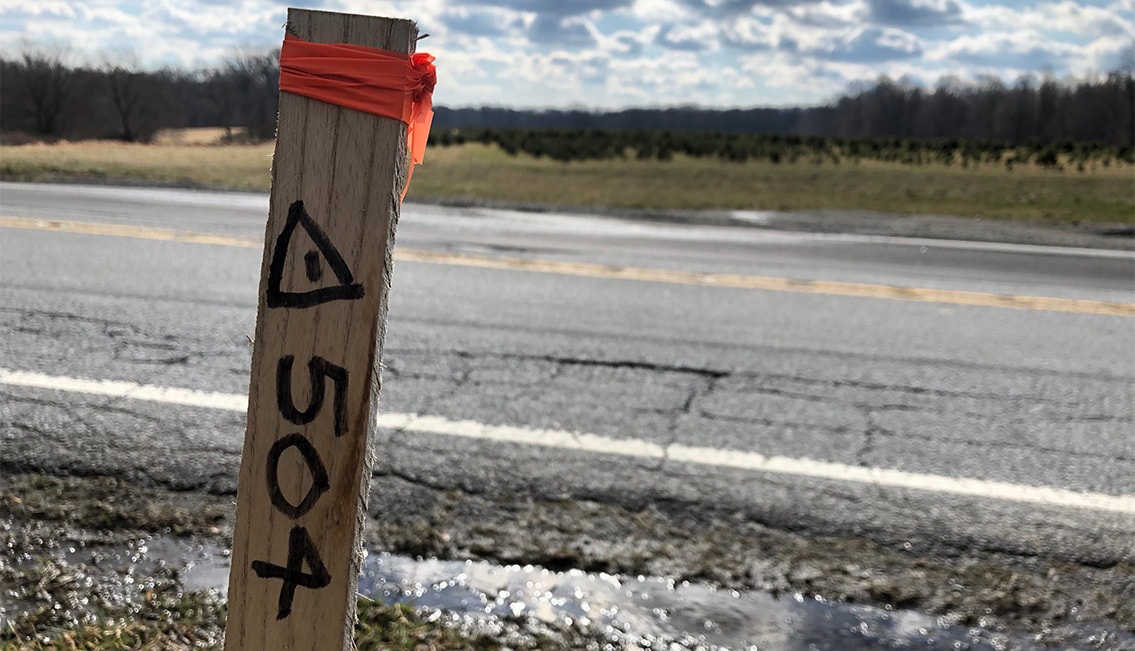Clouded Title 2019 – Conversations in the Field
In 2019, Clouded Title's inquiries about ownership were shared and expanded upon through Common Field, a network of artist-run organizations, and through the Arts Territory Exchange platform – an artists’ collective focused on facilitating collaborations between artists in remote and wilderness locations.
In 2019, Clouded Title's inquiries about ownership were shared and expanded upon through Common Field, a network of artist-run organizations, and through the Arts Territory Exchange platform – an artists’ collective focused on facilitating collaborations between artists in remote and wilderness locations.
1. Arts Territory Exchange
Writing by Daphne Plessner and Emily Artinian about ownership, land, and arts practices is available on the Arts Territory Exchange blog and was included in this Cambridge UK exhibition, Put This in Your Window and Think of Me, by Arts Territory Exchange, in partnership with Art Language Location.
2. Reconsidering Place: Troubling The Urban/Rural Binary For Artist Practices And Organizations
presented at:
Common Field 2019, Philadelphia
a national network of independent arts organizations and organizers
Saturday, April 27, 2019 | 10–11:30 AM
Report from the Field - Selected via Open Call
https://www.commonfield.org/convenings/1949/program/2498/reconsidering-place-troubling-the-urban-rural-binary-for-artist-practices-and-organizations
Organized by Emily Artinian and Fawn Daphne Plessner, Street Road with presentations by Emily Artinian, Fawn Daphne Plessner, Emelie Chhangur - York University Art Gallery, and Matthew Fluharty of Art of the Rural
The field of art is framed by a normative belief that urban spaces constitute a ‘center’ and rural spaces a ‘periphery’. This imaginary is increasingly challenged by concepts that ambiguate conventional understandings of the ‘urban’ and the ‘rural’, as well as other framings such as 'suburban' or 'exurban'. Such designations don’t capture today’s variegated social and cultural spaces, comprised as they are of axes of relationships and mobilities amongst multiple places, including online spaces. This limited terminology reifies place through colonial vocabularies and concepts and thereby reinforces the racialization and industrialization of space, also leaving out important Indigenous concepts and relations to place. Further, it can sustain immobilities, even as mobility and access are increasingly assumed. This session draws out speakers' and attendees' perspectives to examine working in multiple in-betweens, aiming to raise new questions about the cogency of claims to centrality and marginality.
Download a PDF of the session notes.
The accompanying slide presentation was as follows (the session was not filmed/audio-recorded).
Writing by Daphne Plessner and Emily Artinian about ownership, land, and arts practices is available on the Arts Territory Exchange blog and was included in this Cambridge UK exhibition, Put This in Your Window and Think of Me, by Arts Territory Exchange, in partnership with Art Language Location.
2. Reconsidering Place: Troubling The Urban/Rural Binary For Artist Practices And Organizations
presented at:
Common Field 2019, Philadelphia
a national network of independent arts organizations and organizers
Saturday, April 27, 2019 | 10–11:30 AM
Report from the Field - Selected via Open Call
https://www.commonfield.org/convenings/1949/program/2498/reconsidering-place-troubling-the-urban-rural-binary-for-artist-practices-and-organizations
Organized by Emily Artinian and Fawn Daphne Plessner, Street Road with presentations by Emily Artinian, Fawn Daphne Plessner, Emelie Chhangur - York University Art Gallery, and Matthew Fluharty of Art of the Rural
The field of art is framed by a normative belief that urban spaces constitute a ‘center’ and rural spaces a ‘periphery’. This imaginary is increasingly challenged by concepts that ambiguate conventional understandings of the ‘urban’ and the ‘rural’, as well as other framings such as 'suburban' or 'exurban'. Such designations don’t capture today’s variegated social and cultural spaces, comprised as they are of axes of relationships and mobilities amongst multiple places, including online spaces. This limited terminology reifies place through colonial vocabularies and concepts and thereby reinforces the racialization and industrialization of space, also leaving out important Indigenous concepts and relations to place. Further, it can sustain immobilities, even as mobility and access are increasingly assumed. This session draws out speakers' and attendees' perspectives to examine working in multiple in-betweens, aiming to raise new questions about the cogency of claims to centrality and marginality.
Download a PDF of the session notes.
The accompanying slide presentation was as follows (the session was not filmed/audio-recorded).
